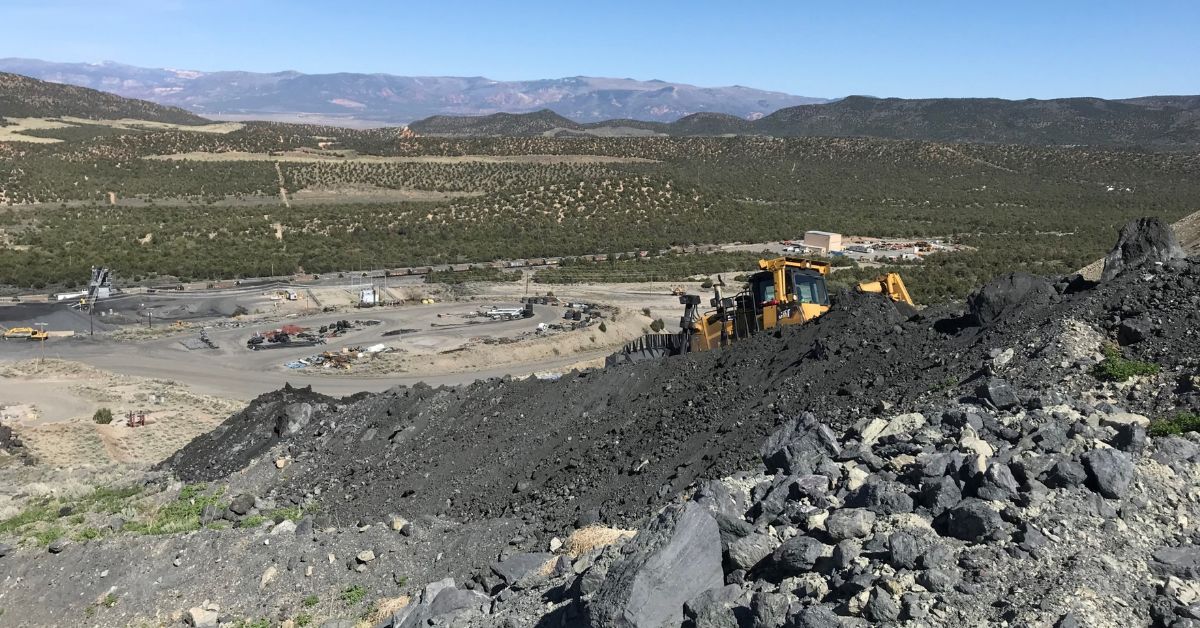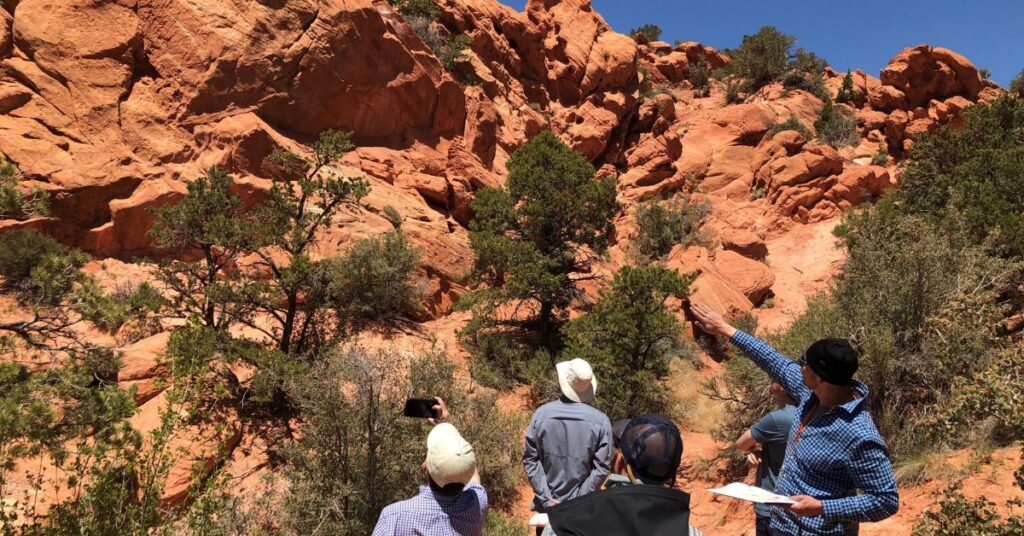Civil and Environmental Engineering faculty expands research into commercial-scale carbon storage across Utah to tackle climate change and revitalize local economies
Pictured above: The Utah Iron mine looking over one of the future CarbonSAFE sites.
What if Utah could lead the charge in addressing climate change by capturing millions of tons of carbon emissions? What if we could boost local economies and transform rural communities in the process? Thanks to a transformative $35 million in new grants from the Department of Energy (DOE), University of Utah researchers are bringing this vision to life.
Three major grants secured by faculty in Price Engineering’s Civil and Environmental Engineering (CvEEN) Department will contribute to the DOE’s carbon emission reduction initiative, an effort focused on managing carbon emissions in Utah and throughout the United States.
The three principal investigators—Drs. Ting Xiao, Nathan Moodie, and Eric Edelman—are members of the Carbon Science and Engineering Research group at the University of Utah’s Energy & Geoscience Institute (EGI). These DOE grants will enable them to deepen their understand of carbon emissions’ effects on local communities and accelerate the development of commercial-scale CO₂ storage solutions, positioning Utah as a leader in sustainable industry and economic transformation.
Beyond reducing atmospheric carbon and promoting a healthier environment, these projects will create high-skilled jobs across geoscience, engineering, environmental management, and data analysis. Engaging local communities—particularly in regions historically reliant on fossil fuels—ensures that they can take part in these emerging sustainable career paths.
By establishing Utah as a hub for carbon management infrastructure, each project will attract further investments from sustainability-focused industries. Regional companies, such as Fervo Energy and Utah Iron, have already committed to using these facilities, forming a network of industries united by their reliance on carbon capture and storage for greener operations. This momentum promises long-term economic benefits and could bring environmentally conscious businesses to the area.
Overview of the Projects
Two years ago, Dr. Ting Xiao, with the EGI and CvEEN teams, received a $10 million grant from the Department of Energy (DOE) to assess the feasibility of a large-scale CO₂ storage complex in the Uinta Basin as part of CarbonSAFE Phase II. By examining geological, social, environmental, and economic factors, this initial research laid the groundwork for the team’s plan to safely sequester up to 50 million metric tons of CO₂ over 30 years. The team has now received three more grants to extend the scope of this project and explore carbon sequestration in two new regions within the state:
- Expanding the Uinta-Piceance Basin Project: Recently, Dr. Xiao secured an additional $5 million DOE grant to build a collaborative carbon management strategy across eastern Utah and western Colorado. This funding will support equitable, environmentally responsible carbon management efforts, including regulatory guidance, data analysis, and an educational program to prepare the future carbon capture workforce.
- Basin and Range Project in Southwest Utah: Dr. Nathan Moodie $10 million from the DOE for his Phase II CarbonSAFE project. His work will assess the feasibility of CO₂ storage in Utah’s Basin and Range region, with industry partners Fervo Energy and Utah Iron contributing direct air capture hubs and green iron processing facilities to the effort. This project supports the goal of establishing the first “green” iron plant in the U.S.
- Rocky Mountain Project in Central Utah: Dr. Eric Edelman is leading the Rocky Mountain CarbonSAFE project with $11 million in funding to establish a CO2 sequestration hub in central Utah. This initiative involves gathering geological and geophysical data for the region and drilling a characterization well to evaluate the long-term CO2 storage potential and associated risks. Emphasizing community engagement and new opportunities, the project aims to support sustainable economic growth in the region while significantly reducing carbon emissions.
A Unified Vision for Sustainable Carbon Capture
Together, these projects represent $35 million in dedicated research toward a scalable carbon storage infrastructure in Utah. By advancing the University of Utah’s mission to combat climate change, the CarbonSAFE initiative positions the state as a leader in carbon sequestration, aligning with state and national goals for emission reductions and a sustainable energy future.
“I am proud to have served as these stellar scientists’ Ph.D. advisor and co-PI on these four grants totaling $35 million,” said Dr. Brian McPherson, director of the Carbon Science and Engineering Research group and Professor in Civil and Environmental Engineering. “Their research has the potential to create lasting environmental and economic impacts.”
More news from our department:
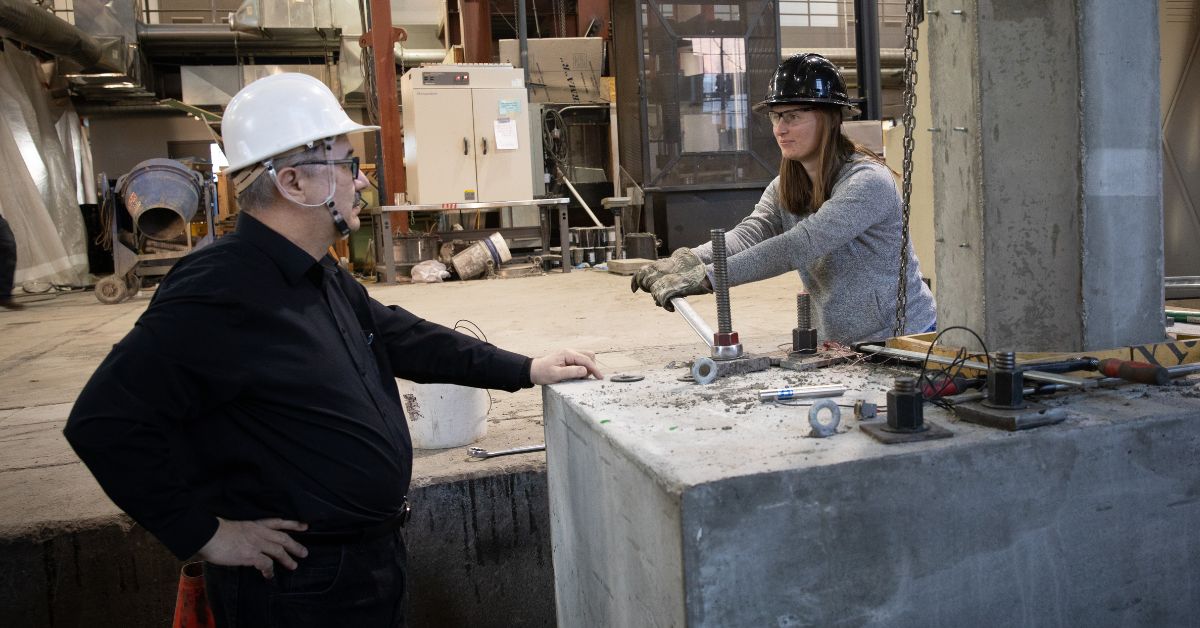
Mentor and Innovator: Chris Pantelides
Blending Visionary Research with Student Success in Structural Engineering Dr. Chris Pantelides has served as a structural engineering professor at the University of Utah for 33 years. In that time, he has built a state-of-the-art structural engineering lab in the Layton Engineering Building, received numerous honors and distinctions from leading engineering societies, and graduated 20 […]
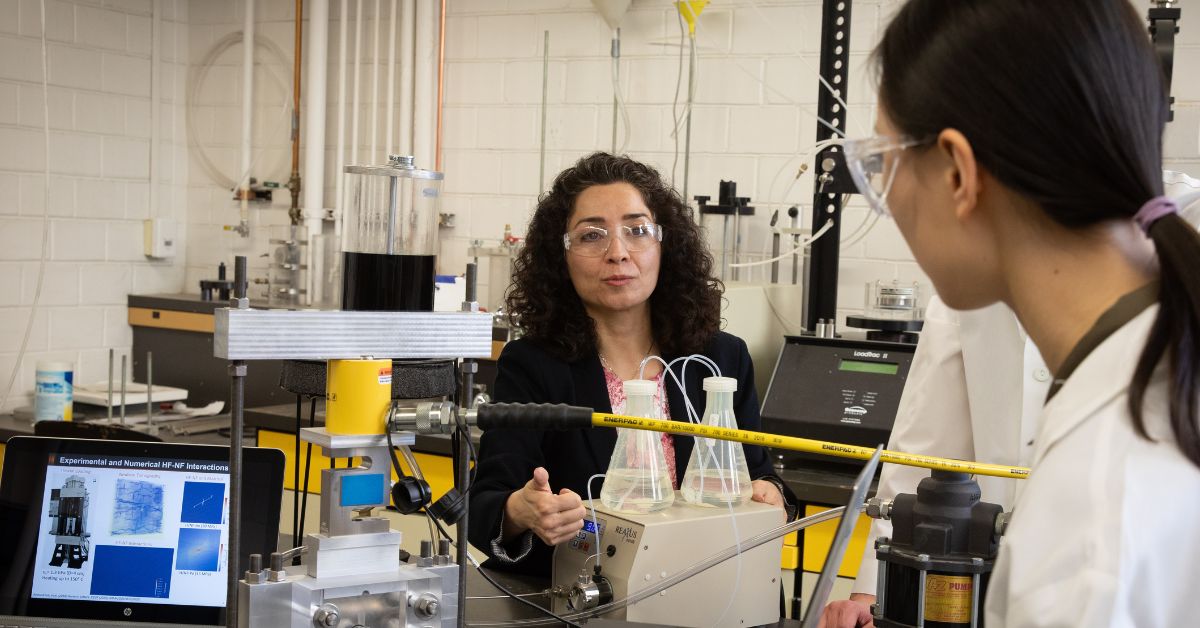
Dr. Shahrzad Roshankhah Awarded Department of Energy Grant to Advance Research on Enhanced Geothermal Systems
Geothermal energy offers a sustainable way to power homes and industries by harnessing the Earth’s heat. However, extracting this energy from deep, hot dry rock layers presents unique challenges, such as maintaining permeable channels—or fractures—within high-temperature, high-pressure, high-stress environments. The fractures in geothermal reservoirs allow fluids to flow through the reservoir and carry the heat […]

Enhancing Construction Engineering Education with AI-Driven Mobile App
Dr. Abbas Rashidi’s Role in Groundbreaking NSF Research The intersection of technology and education is creating new possibilities for learning, and at the forefront of this transformation is a project funded by the National Science Foundation (NSF). Dr. Abbas Rashidi, an Associate Professor in the Department of Civil & Environmental Engineering, is playing a key […]
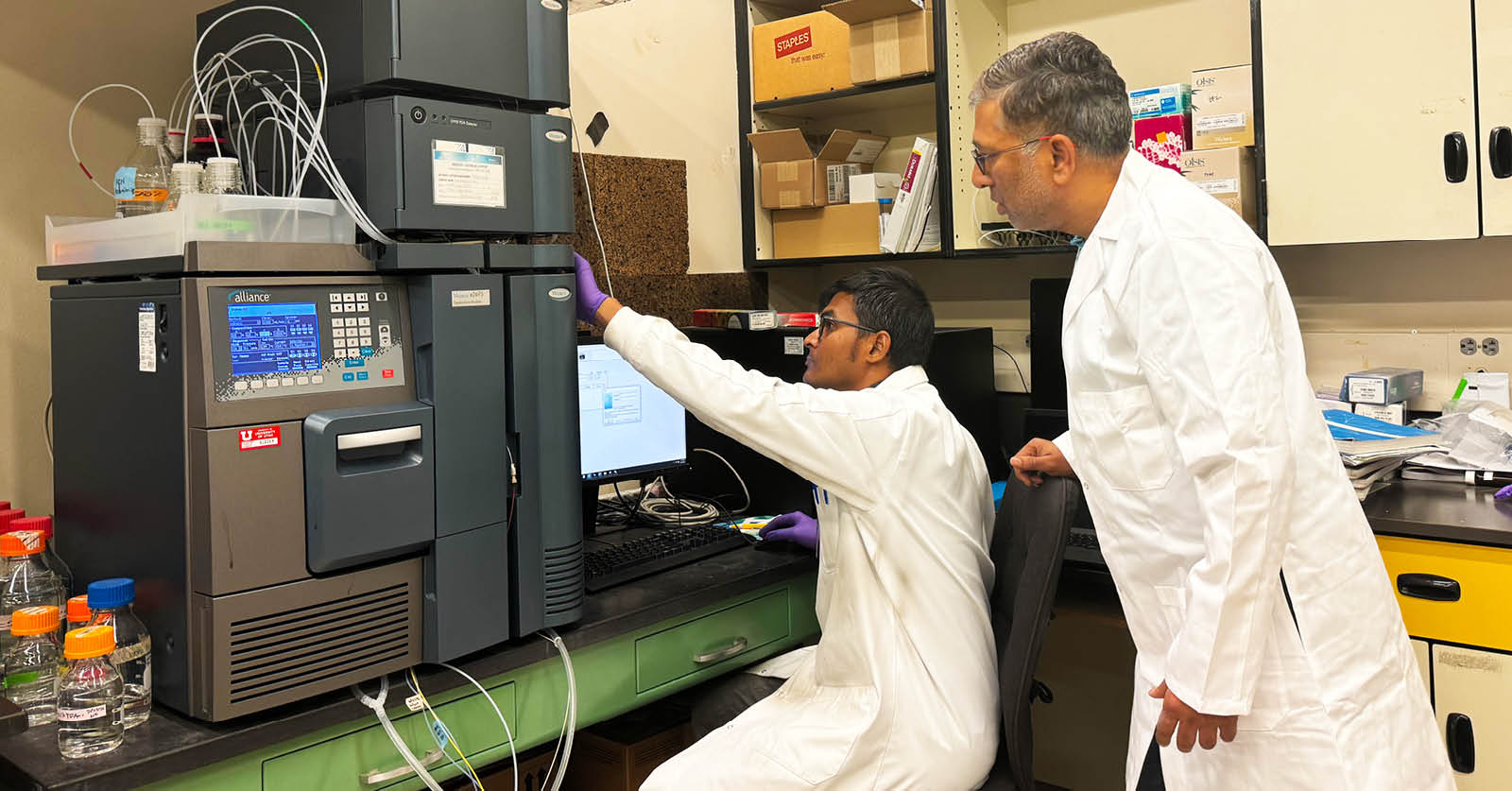
Fighting Forever Chemicals
Dr. Ramesh Goel Leads $1.6M EPA Research on PFAS Known as “forever chemicals,” per- and polyfluoroalkyl substances (PFAS) are a group of synthetic chemicals that have been widely used in various industrial and consumer products, such as non-stick cookware, water-repellent clothing, and firefighting foams. Their resistance to degradation combined with their potential to accumulate in […]

